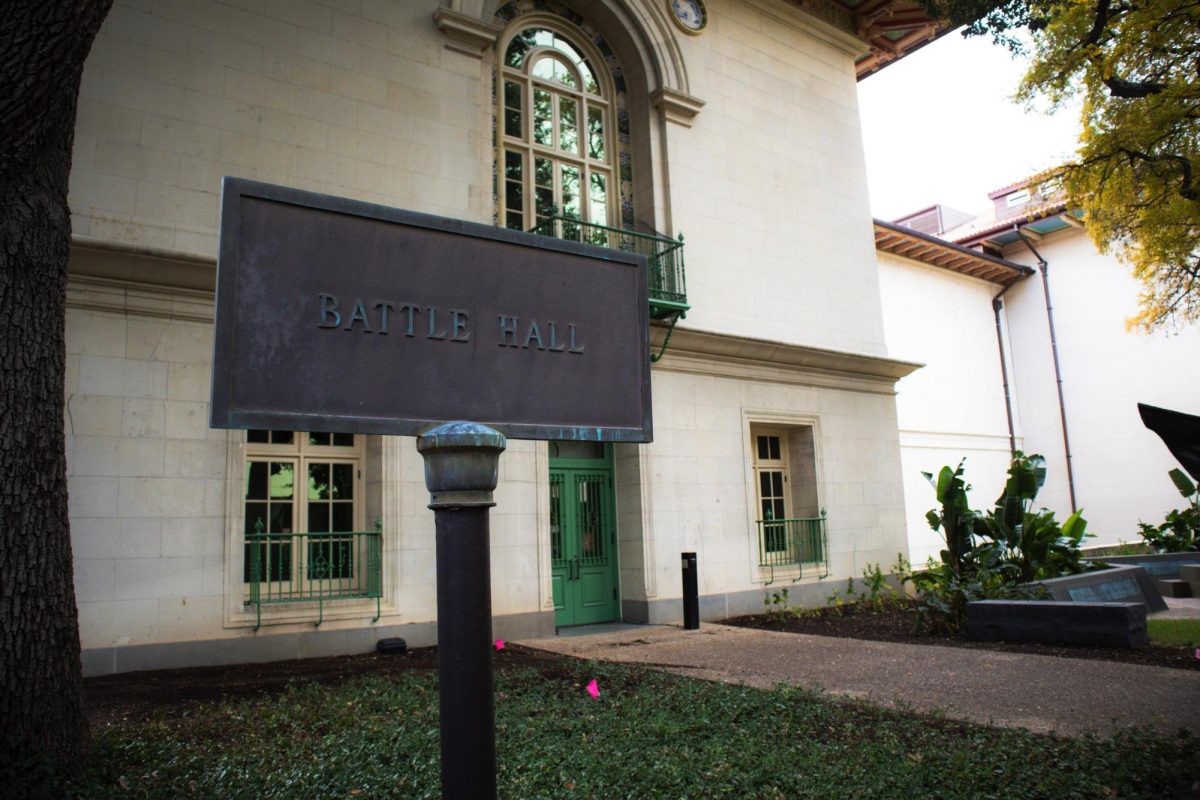A total of 622 new beds will be available to students in West Campus for the fall 2013 semester, according to an official from the University’s realty group.
The site, located where the 120-year-old Wooldridge Hall stood until this summer, will contain a high-rise apartment complex built by Education Realty Trust Inc., said Amy Wanamaker, director of campus real estate. While the University will continue to own the land, the building will be handled by the realtors, and the University will make only a small profit, she said.
“It’s kind of a low-risk, low-profit endeavor for us,” she said. “We’ll always own the land and the better news is that we’re not putting our own funds into the development. There will probably be a modest return, but it’s a low-risk one, which is really important to us.”
The group plans for the UT International Office, formerly in Wooldridge Hall, to relocate to the first floor of the complex, which is required by the University Neighborhood Overlay to be reserved for office or retail space, Wanamaker said.
The unit will be 16 stories tall, providing studio, one-, two-, three- and four-bed units, and will contain a structured parking garage and a swimming pool, said Gene del Monte, director of construction and development for Education Realty Trust, Inc. The project will have 613 beds for undergraduate students, graduate students and faculty, he said.
Construction on the project is scheduled to begin this month, and the complex should open in August of 2013, del Monte said. Although pricing will not be determined until later in the building process, it will be based off of pricing in other comparable apartment complexes in West Campus, he said.
“Pricing will be competitive,” he said. “We’re not going to overprice the complex while other new buildings are going up as well.”
The project is one among several new complexes being built or already built in West Campus that are particularly tall, including 21 Rio and The Castilian, del Monte said.
The University will lease the land out to the realty group and building the facility will likely be costly, said Brian Donovan, a member of the Central Austin Neighborhood Planning Advisory Committee. An August discussion regarding affordability in the West Campus area among groups such as CANPAC resulted in a compromise with city commission members. If the compromise is approved by City Council, new complexes will have to contribute more to the affordability funds and provide more beds at lower rates than before.
The University is exempt from city zoning restrictions and could choose to ignore affordability requirements if officials wanted to, but Donovan said he believes they will choose to follow the requirements. Providing affordable housing through the realty group is actually better in terms of affordability than it would be if the University had chosen to build the complex independently, Donovan said.
“I believe that they’re going to comply with the University Neighborhood Overlay’s requirements,” he said. “I feel good about the fact that they’re going to follow the requirements like other developments in West Campus instead of taking advantage of the option to ignore them.”


















